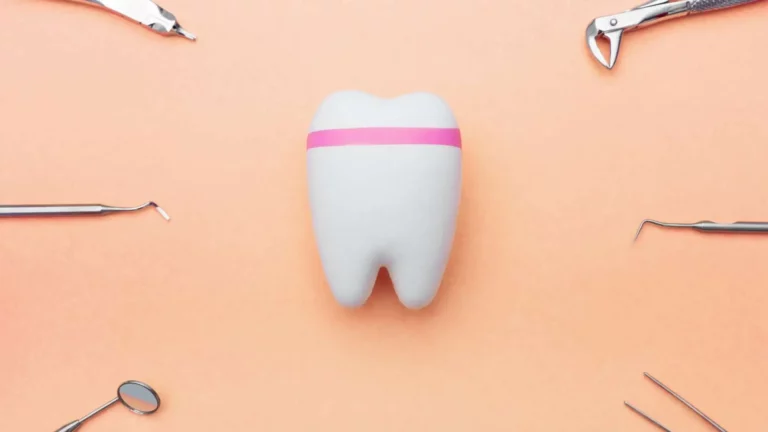Don’t worry if you lose a tooth due to an accident, illness, or injury. Several modern medical techniques may help you smile with confidence again. In this blog, we discuss the specifics of dental implants, covering everything from their advantages to the options and prices. So, let’s get started.
Investing in Your Smile
When considering tooth replacement, it is essential to view it as an investment in your oral health and overall well-being. A complete set of teeth enhances your appearance and plays a crucial role in maintaining the structure of your mouth and jaw. Replacing missing teeth can prevent other teeth from shifting, reduce the risk of gum disease, and improve your ability to chew and speak effectively.
Benefits of Replacing Your Teeth
Replacing missing teeth offers numerous benefits beyond aesthetics. Functionally, a complete set of teeth allows for proper chewing and digestion, which can impact your overall nutrition and health. Tooth replacement can prevent bone loss in the jaw, often when teeth are missing for an extended period. Psychologically, having a complete set of teeth can boost your confidence and self-esteem, making social interactions more enjoyable.
Read Related Article: Does dental insurance cover implants?
Solutions for Missing Teeth
Several solutions are available for replacing missing teeth. Each option has advantages and considerations, so it’s important to choose the one that best fits your needs and budget.
Dentures
Dentures are a popular and cost-effective solution for missing teeth. Removable appliances can replace a few missing teeth (partial dentures) or an entire set (full dentures). Dentures have come a long way in terms of comfort and appearance, with modern options looking more natural. The cost of dentures can vary widely based on materials, the complexity of the design, and the need for additional procedures like tooth extractions.
Implants
Dental implants are a more permanent and increasingly popular solution for tooth replacement. An implant involves surgically placing a titanium post into the jawbone, which serves as a foundation for a crown. This highly durable option offers a look and feel closest to natural teeth. Dental implants can be significant, ranging from $3,000 to $5,000 per tooth, but they offer long-term benefits and can last a lifetime with proper care.
Bridges
Dental bridges are another standard solution for replacing one or more missing teeth. A bridge typically involves creating a crown for the teeth on either side of the gap and placing a false tooth (or teeth) in between. This option is less invasive than implants and can be a good middle-ground in terms of cost, with prices ranging from $2,000 to $5,000 depending on the materials used and the complexity of the placement.
Other Solutions
Other tooth replacement options include resin-bonded bridges, which are less invasive and typically less expensive than traditional bridges. Additionally, for those looking for a temporary solution, flippers (removable partial dentures) can be used until a more permanent option is selected.
Cost of a Fake Tooth: Breakdown
Fake tooth costs can vary significantly based on the type of replacement chosen. Here is a breakdown of the typical costs associated with different tooth replacement options:
- Dentures: The cost of dentures can vary widely. It depends on various factors, such as pre-denture procedures and the requirement of partial or full dentures. The average cost nationwide can range between $2,000 to $55,000.
- Dental Implants: Dental implants cost $3,000 and $4,500 per tooth. If you require a mouthful of implants, then the cost can go as high as $60,000 and $90,000
- Bridges: Depending on the type of bridge, the cost can be between $1,500 to $5,000, while Resin-Bonded Bridges cost $1,000 – $2,500.
- Flippers: Flippers are the cheapest option, usually costing around $300 – $500.
What Affects Fake Tooth Cost
Several factors can influence the cost of replacing a tooth, including:
Type of Replacement: Implants are generally more expensive than dentures or bridges.
Materials Used: High-quality materials will increase costs but may offer better durability and aesthetics.
Location: Dental costs can vary by region and the cost of living in that area.
Complexity Of The Procedure: More complex cases requiring additional procedures, such as bone grafting for implants, can add to the overall cost.
Dentist’s Experience: Highly experienced specialists may charge more for their expertise.
Finding the Right Fit
Choosing the right tooth replacement option involves considering your budget and specific dental needs. Consulting with a dental professional is crucial to assess your situation and discuss your best options. They can provide detailed information on the pros and cons of each method and help you make a decision that aligns with your goals and financial situation.
Cost-Effective Solutions to Fake Teeth
When seeking cost-effective solutions for fake teeth, consider options like dentures, resin-bonded bridges, and flippers. These alternatives offer affordability without compromising functionality. Dental insurance coverage, payment plans, and financing options can help cover expenses and make tooth replacement more accessible.
Will My Health Insurance Cover Fake Teeth?
Health insurance plans vary widely in terms of coverage for dental procedures. While some plans may cover a portion of the cost of dentures or bridges, dental implants are often considered elective and may not be covered. It is important to review your insurance policy and speak with your provider to understand your coverage options. Additionally, some dental offices offer payment plans or financing options to help manage the cost of tooth replacement.
Conclusion
Replacing a tooth maintains oral health and gives you a confident smile. Various methods can help replace missing teeth, such as dentures, dental implants, flippers, etc. However, some solutions can be expensive and permanent, while others can be cheap but temporary. If you need to cover the cost of replacing your missing teeth, consider applying for a financing option. You can also check out dental coverage. When looking for dental coverage, comparing multiple options and thoroughly understanding their policy is important. Consider Beem, a platform to compare multiple offers from various health insurance providers. You only need to enter basic details, and Beem will offer personalized offers based on your requirements.
Read Related Article: How to get dental implants covered by medical insurance.
FAQs
How much does it typically cost to replace a missing tooth?
The cost of replacing a missing tooth varies widely depending on the method chosen. Dentures can range from $2,000 to $55,000, dental implants typically cost between $3,000 and $4,500 per tooth, and bridges range from $1,500 to $5,000.
What are some affordable options for a fake tooth?
Affordable options for tooth replacement include resin-bonded bridges, which can cost between $1,000 – $2,500. Flippers are a temporary, low-cost solution, priced between $300 and $500.
Is it worth paying for an expensive, permanent tooth replacement option?
While expensive, permanent options like dental implants offer significant long-term benefits, including durability, functionality, and a natural appearance. They can prevent bone loss and maintain jaw structure, making them a worthwhile investment for many individuals. However, the best option depends on individual needs, budget, and preferences. Consulting with a dental professional can help determine the most suitable choice.






























